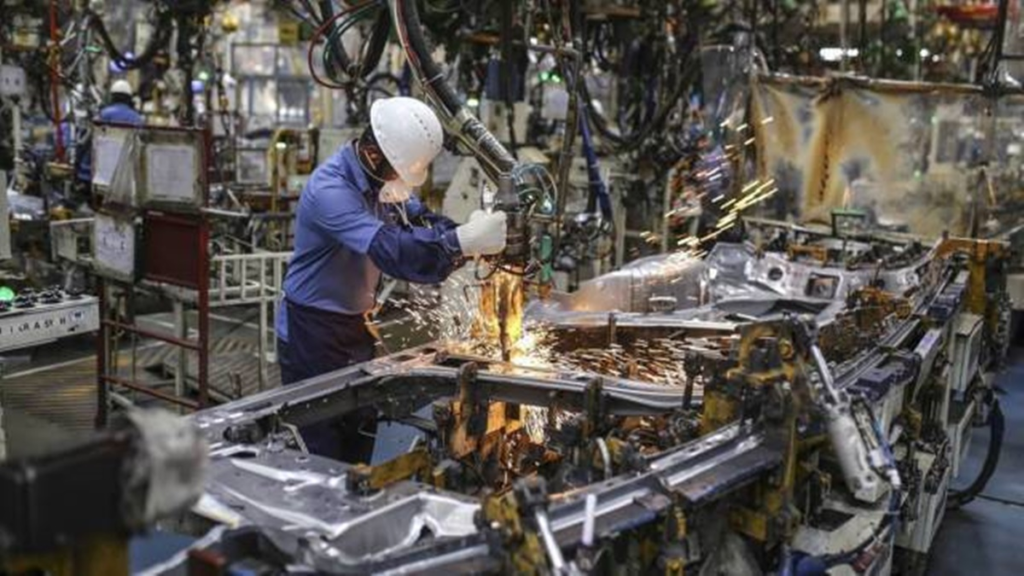The Financial Express
Discounting the notion that the economy is losing steam fast amid the global demand slump and a drying out of domestic consumption, manufacturing activities in the country touched a three-month high in March helped by faster expansions in new orders and output. The seasonally adjusted S&P Global India Manufacturing Purchasing Managers’ Index (PMI) rose from 55.3 in February to 56.4 in March, signalling the strongest improvement in operating conditions in 2023 so far and demand resilience.
The latest high-frequency economic data came on the heels of a 22% year-on-year jump in goods and services tax collections in March to Rs 1.61 trillion, the second-highest monthly mop-up ever from the indirect tax, which is applied on a broad spectrum of transactions.
Also read: Unseasonal rains hit MSP wheat procurement
However, some other economic indicators don’t bear out sustained economic momentum.
Growth in core infrastructure industries slowed to a three-month low of 6% in February. Though seven of the eight infrastructure industries that are part of the index registered expansion in the month, the rate of growth decelerated sequentially in six of the sectors, barring fertilisers and cement.
PMI manufacturing and GST receipts are the last set of macro-economic data to be released before the meeting of the monetary policy committee on from April 3-6. Most analysts predict a 25 basis points hike in the repo rate to 6.75% given the persistently high retail inflation, though economic growth is expected to be just around 4% in the fourth quarter and remain subdued in the current quarter and the next too.
The March PMI data pointed to an improvement in overall operating conditions for the 21st straight month. In PMI parlance, a print above 50 means expansion while a score below 50 indicates contraction.
“Underlying demand for Indian goods remained strong in March, underscored by the quickest upturn in factory orders for three months. Hence, production continued to expand at a robust clip and firms stepped up their stock building efforts,” said Pollyanna De Lima, economics associate director at S&P Global Market Intelligence.
According to the survey, input cost inflation retreated to its second-lowest mark in two-and-a-half years in March as pressure on supply chains subsided and the availability of raw materials improved.
Subsequently, goods producers concentrated on rebuilding their stocks. Robust increases in buying levels in recent months supported a near-record accumulation of input inventories in March.
On the prices front, close to 96% firms signalled no change in cost burdens since February.
“Although selling prices increased further at the end of the last fiscal quarter, the rate of inflation was moderate and broadly similar to February. Several panellists reportedly left their fees unchanged amid efforts to boost sales,” Lima said.
On the jobs front, goods producers kept payroll numbers broadly unchanged in March, as outstanding business volumes rose at a marginal rate that was the weakest in a year.
“Companies reported abundant capacity among themselves and their suppliers. Pending workloads expanded only marginally in March, hindering job creation,” Lima said.
Also read: Govt procurement via GeM crosses Rs 2 trillion in FY23: Piyush Goyal
Going ahead, Indian manufacturers expect improved customer relations, new product releases and advertising to support sales and subsequently production over the course of the coming 12 months.
“Although manufacturers were upbeat towards future new orders, they somewhat doubted that inflation would continue to recede. Such worries restricted optimism towards output prospects,” Lima said.
Get live Share Market updates and latest India News and business news on Financial Express. Download Financial Express App for latest business news.

